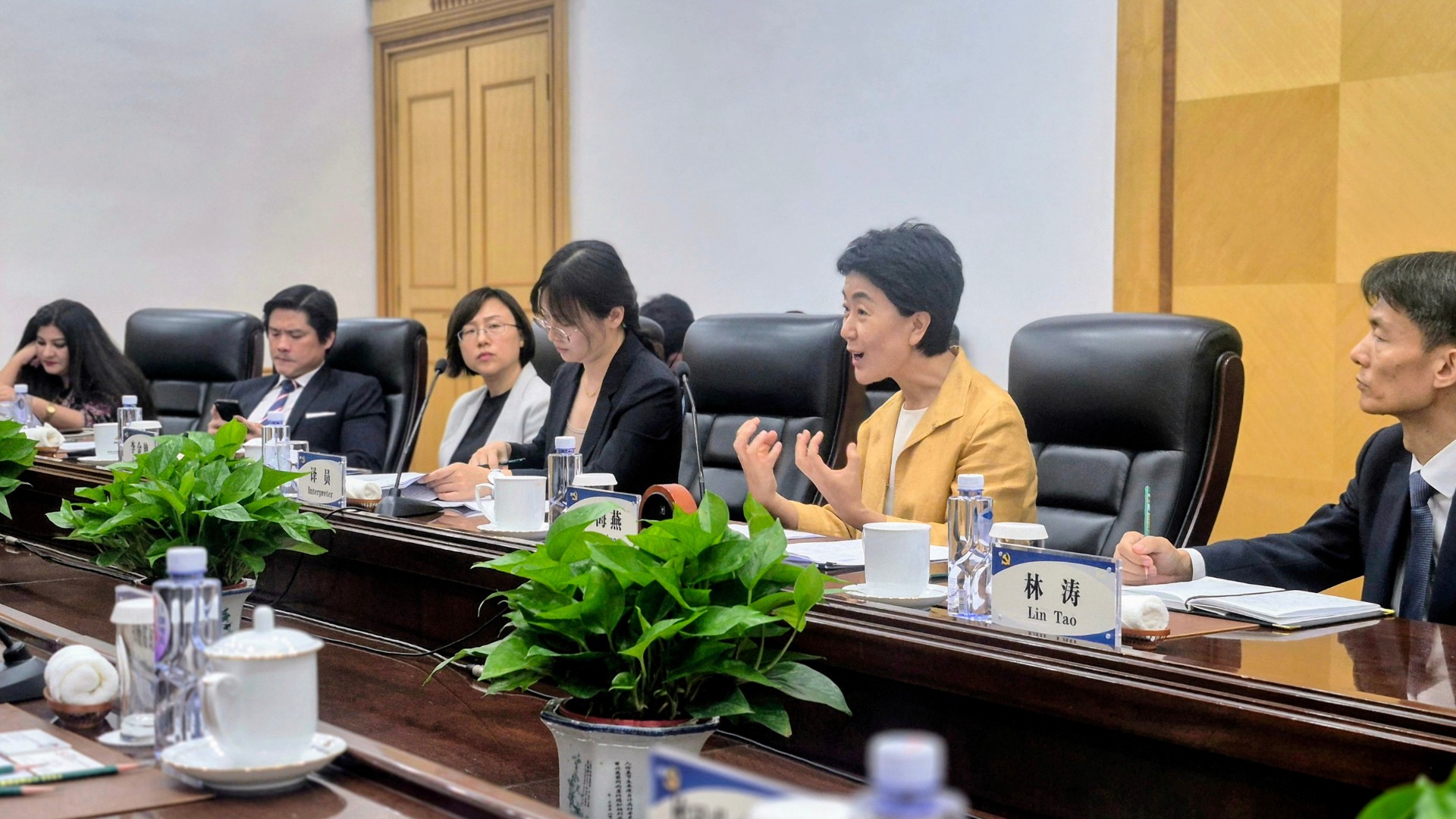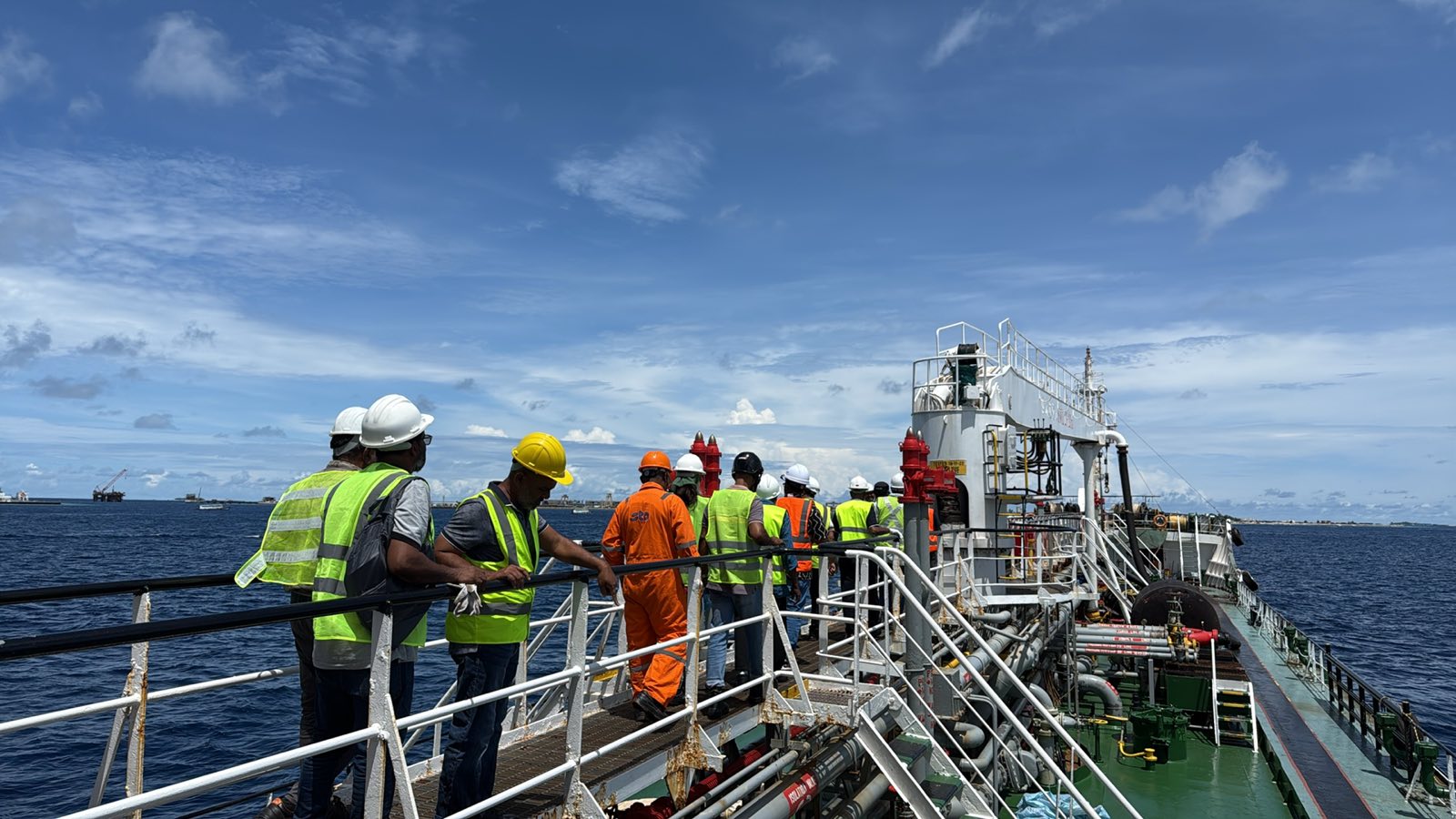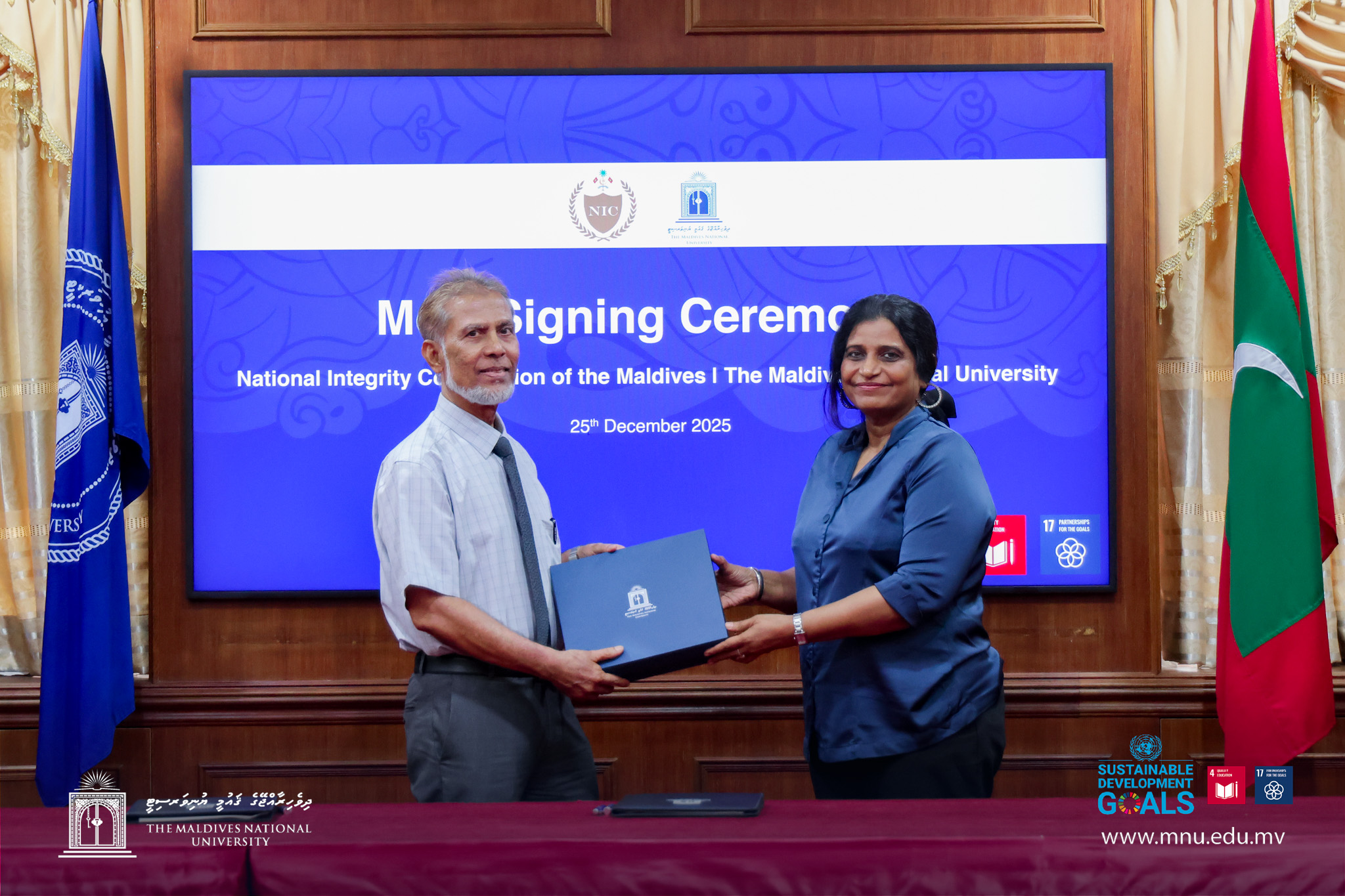On 16 September 2025, the analysis’s author participated in a strategic dialogue in Beijing with Sun Haiyan, Vice Minister of the International Department of the Communist Party of China (CPC), alongside South and Southeast Asian delegates. The session provided firsthand insights into China’s evolving security doctrine. Particularly, the Global Security Initiative (GSI), and its implications for small states like Maldives were of interest to author.
Introduction
China’s Global Security Initiative (GSI), launched by China’s President Xi Jinping in 2022, represents a strategic recalibration of global security norms. Positioned alongside the Belt and Road Initiative (BRI), GSI emphasises cooperative security, sovereignty, and development as interlinked pillars of regional stability.
For small states like Maldives—situated at the nexus of Indian Ocean maritime routes—the implications are both promising and complex.
During author’s participation in the CPC-led dialogue in Beijing, GSI was framed as a cornerstone of China’s foreign policy, designed to foster collective and mutual security engagements across South and Southeast Asia. The initiative was presented not merely as a military or great-power strategy, but as a multidimensional framework encompassing comprehensive security, including food security, climate resilience, and diplomatic capacity-building.
Analysing GSI through the lens of Maldives, one could argue that while it offers new avenues for regional integration and strategic partnerships, it also challenges traditional notions of sovereignty and small-state autonomy. By situating Maldives within China’s broader regional calculus, this analysis contributes to a deeper understanding of how small states navigate emerging global initiatives and recalibrate their foreign policy in response to shifting geopolitical tides.
Conceptual Framing
GSI is conceptually grounded in key principles: common, comprehensive, cooperative, and sustainable security; respect for sovereignty; and peaceful dispute resolution. GSI promotes a development-security nexus—arguing that economic growth and infrastructure connectivity are foundational to peace.
Author’s engagement in CPC-led discussions highlighted the importance of expanding the definition of security beyond military dimensions. The Vice Minister emphasised areas such as food security, climate change, and digital governance as integral to GSI’s scope. This aligns with China’s narrative of “win-win cooperation,” where strategic investments are framed as mutually beneficial rather than coercive.
For Maldives, this conceptual framing is significant. As a small state with limited hard power, its security priorities are deeply intertwined with climate resilience, maritime governance, and economic diversification. GSI’s emphasis on inclusive dialogue and regional stability resonates with Maldives’ diplomatic norms, particularly its commitment to multilateralism and constructive engagement—i.e., Maldives’ construction of climate security narratives empathises this small state’s agency.
Analytically, China’s dual-track approach, separating BRI as an economic strategy and GSI as a security framework, creates layered incentives for small states. While BRI projects in Maldives have focused on infrastructure and development, GSI’s closer regional initiatives can introduce potential dimensions of strategic alignment, including defence cooperation, maritime surveillance, and military and diplomatic training, with the Indian Ocean small state.
GSI’s regional framework can add to Maldives’ national priorities in navigating regional partnerships, playing an active role in building mutual regional security dialogue, and balancing sovereignty with strategic interdependence.
GSI’s National and Regional Dimensions
GSI reflects China’s ambition to shape a common security environment conducive to its rise as a global leader, promoting lasting peace. GSI reinforces the CPC’s narrative of stability through development, projecting internal governance models as templates for international cooperation.
During the September 2025 dialogue, the Vice Minister emphasised GSI’s role in fostering mutual security dialogues across South and Southeast Asia. For example, GSI can offer a platform for less-resourced states to engage in regional security dialogues.
However, for meaningful participation, transparent and mutually respectful narratives must guide bilateral engagements. While full multilateralism is ideal, inclusive regional dialogue—such as Maldives-India cooperation, extending regional priorities—should be anchored in broadening the role of Maldives. Regional engagements must prioritise trust-building, shared interests, and equitable representation.
GSI’s approach is not only inclusive but also can work to foster partnerships that empower the Indian Ocean small states to extend their commitment to regional stability and support the broader regional security efforts. For example, GSI can complement China’s Belt and Road Initiative (BRI), which includes strategic port investments in Gwadar (Pakistan), Hambantota (Sri Lanka), and Djibouti (Africa). These nodes serve both economic and military functions, enabling China to expand its naval footprint and secure maritime trade routes.
Maldives, with its geostrategic location and history of non-alignment, projects a potential critical posture in this architecture. However, in moving forward, Maldives must prioritise national interests. While GSI offers tangible benefits—such as training, technology transfer, and crisis response—it also raises concerns about dependency, transparency, and strategic leverage, and Maldives can have an agential role in this.
Small States’ Role Beyond the Indian Ocean
While Maldives is often viewed through the prism of Indian Ocean geopolitics, its engagement with regional platforms, such as GSI, can signal the broader role for small states in shaping global security discourse. China’s framing of GSI as an international initiative accessible to all countries opens space for small states to assert agency beyond their immediate regions.
Author’s participation in CPC-led discussions signals Maldives’ capacity for diplomacy and constructive dialogue, through academic and civic engagements, within broader Asian security frameworks. This reflects a growing recognition of small states as norm entrepreneurs—able to influence agenda-setting and mediate tensions in multilateral forums.
Small states bring unique assets to the GSI framework: moral authority, diplomatic agility, and strategic neutrality. Maldives, for instance, has demonstrated leadership in climate diplomacy, maritime governance, and regional cooperation. Hypothetically, its potential involvement in Southeast Asian security discussions and South China Sea negotiations, through unique knowledge on multilateralism, can illustrate the expansive role of small states.
China’s outreach to small states under BRI and GSI is not merely symbolic. It reflects a strategic calculus where influence is built through partnerships that are less encumbered by historical rivalries or alliance politics. For Maldives, this presents opportunities to diversify its security partnerships, enhance institutional capacity, and contribute to regional stability.
However, it also demands vigilance: ensuring that engagement does not compromise sovereignty or entrench asymmetrical dependencies. By aligning selectively with GSI principles while maintaining strategic autonomy, small states can navigate the evolving security landscape with resilience and purpose.
Maldives’ development, defence and security engagements with regional and extra-regional partners already resemble and emphasise the principles of mutual respect for sovereignty and territorial integrity. The Government’s approach to balanced foreign policy—i.e., for example, Maldives’ extending military cooperation with Türkiye, including the introduction of Türkiye-made drones, complementary to its ongoing maritime security exercises with India and Sri Lanka, is indicative. In 2025, Australia pledged to gift a steel-hulled Guardian-class Patrol Boat—designed and constructed by Austal Australia—to the Maldives National Defence Force (MNDF). This not only enhances Maldives-Australia defence cooperation but also bolsters the MNDF Coast Guard’s interoperability, creating capabilities to further participation and contribute to the regional security architecture.
Maldives’ experience offers a template for other small states seeking to engage constructively with emerging global initiatives without forfeiting their core interests.
Conclusion
Potential engagements with China’s GSI dialogue do not undermine Maldives’ foreign policy objectives in the region. GSI can offer both opportunities and challenges—inviting deeper engagement in regional and global diplomacy while testing the boundaries of sovereignty and strategic autonomy. Author’s firsthand engagement with CPC officials highlighted the initiative’s multidimensional scope, encompassing climate, food, and maritime security. By critically assessing GSI’s conceptual framing, national implementation, and regional outreach, this analysis emphasises small states’ agency in shaping inclusive, resilient, and balanced security architectures—not their material limitations.
Author
Dr Athaulla A Rasheed is the Head of Centre at the Centre for Security and Strategic Studies at The Maldives National University. A former foreign service officer and diplomat at the Ministry of Foreign Affairs, Maldives, Athaulla also holds two PhDs in international and strategic studies, and political science from ANU and the University of Queensland, Australia.





